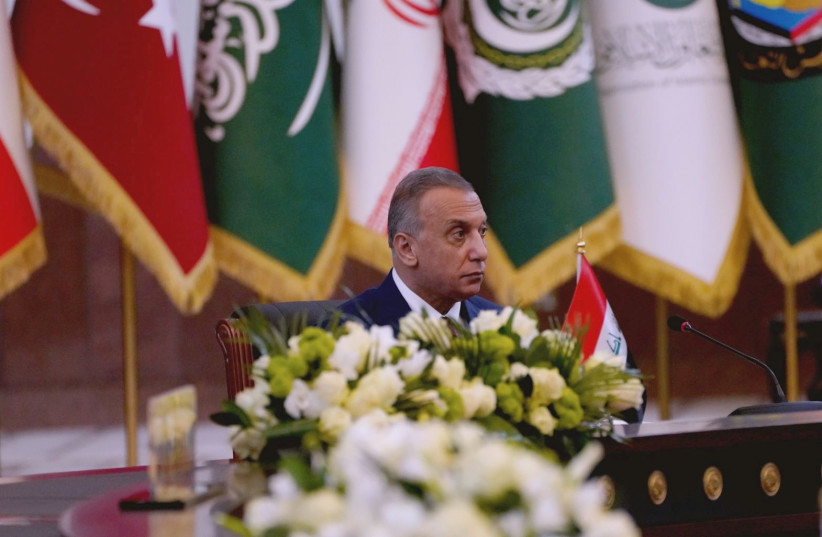Iraq is facing numerous challenges, not the least of which is the presence of pro-Iran militias that use Iraq to threaten the US, Israel and the Gulf states. Iraqi Prime Minister Mustafa Al Kadhimi traveled to Saudi Arabia and Iran on Saturday in an important gesture that shows how Iraq can be a bridge between Tehran and Riyadh. The question now is whether the meetings will bear fruit or whether the Iranians believe Kadhimi will leave office soon and they will seek to engineer Iraq even further into an Iranian regime colony.
According to a report at The National in the United Arab Emirates, the Iraqi leader went to Saudi Arabia “leading a senior delegation, Kadhimi arrived in the Saudi city of Jeddah late on Saturday where he was greeted by Saudi Crown Prince Mohammed bin Salman. The Iraqi delegation performed Umrah in Makkah early on Sunday before leaving for Tehran.”
“Since April last year, Riyadh and Tehran have held five rounds of talks in Baghdad to mend relations that have been damaged since 2016.”
The National
The meetings were thus held in the context of Iraq having tried to broker Iran-Saudi talks. After years in which Riyadh and Iran had very negative relations, Iraq tried to be a place where coexistence might begin. The issue here is that Iraq is not a strong country and its leadership doesn’t project strength. Inevitably, that means even when it hosts the talks, it is likely Iran has its hands on the scales.
Healing old wounds

These talks “represented a road map for mending relations and returning to the right course of strengthening bilateral relations” between Saudi Arabia and Iran, an official was quoted as saying according to The National. “Since April last year, Riyadh and Tehran have held five rounds of talks in Baghdad to mend relations that have been damaged since 2016.”
Iraqi Foreign Minister Fuad Hussein has praised the talks. But Iraq itself is in political chaos after Muqtada al-Sadr told his parliamentary members to walk away from the Iraqi parliament. This has strengthened the pro-Iran parties such as the Fatah Alliance and Nouri al-Maliki’s State of Law Party.
According to other reports in the Gulf, the meetings included talks with the deputy prime minister and also minister of defense of Saudi Arabia. Reports spoke generally of the “bilateral” relations between the countries and “joint cooperation.” According to Al-Ain media, “the two sides also exchanged views on a number of issues, which contribute to supporting and strengthening security and stability in the region.” Baghdad stressed that it could help bring peace to the region.
Iranian media did not seem to shine much light on these meetings, leaving one to wonder what Iran thinks it is achieving.
